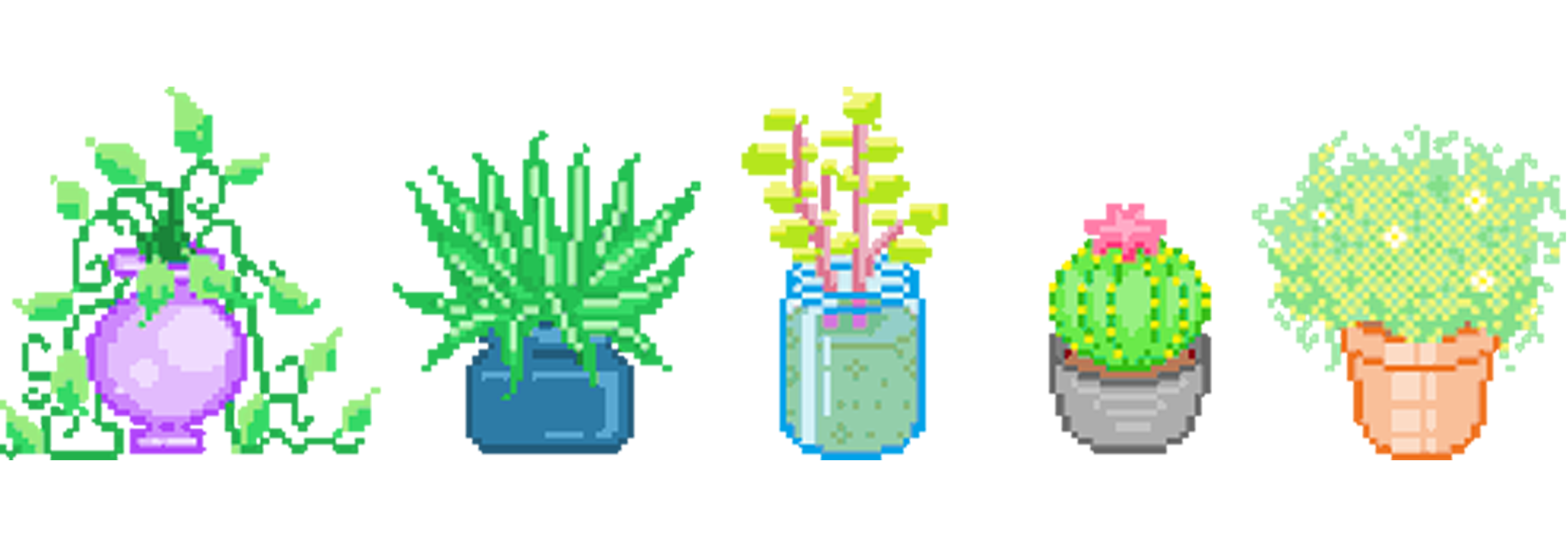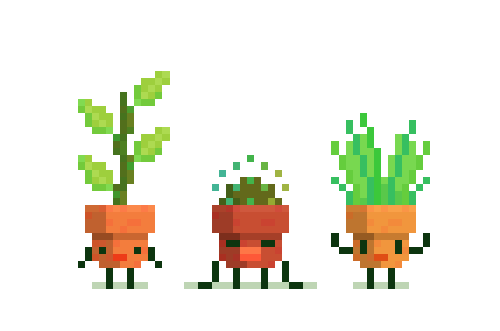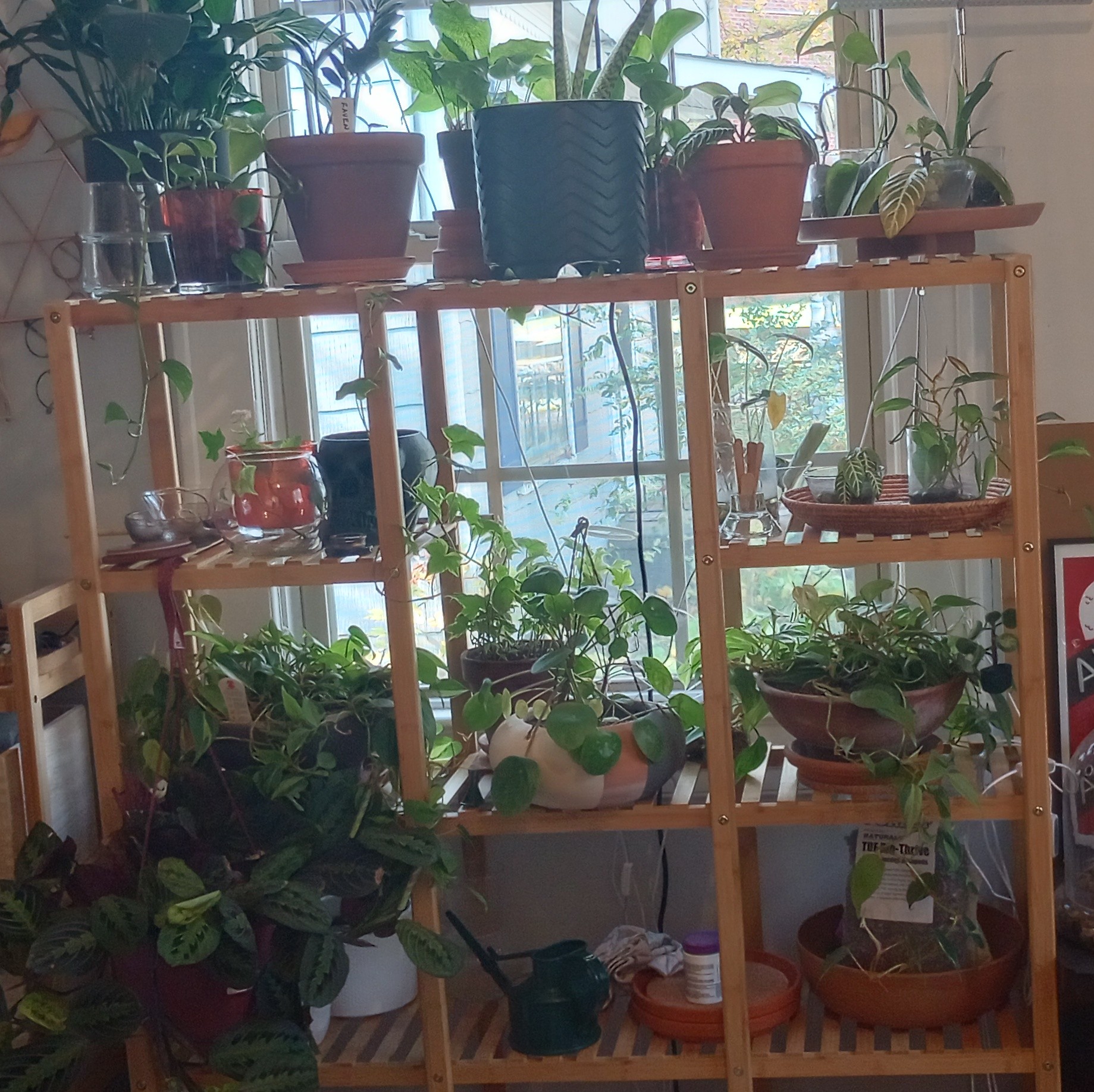I am in Chicago and so I don't normally bring a lot of plants inside because I'm used to just planting perennials or replanting in the spring. But I do bring a few herbs inside and I also have a lot of succulents. If you have a south facing window, put as many plants as you can in that window and here rest can get put under a grow light. Make sure that window is properly sealed so as to prevent a cold draft or frost from getting in. Now some old Chicago homes use radiant heat under the windows which actually works very well to keep your plants warm and undamaged from a cold window, but I've found that an electric heater under the window works just as well. I doubt it will get cold enough in the south that you would ever need to move your plants out of the window, but if it does, they can survive a few days with low light. If you have a ton of plants, consider setting up a multi tiered shelf next to the window or somewhere else with lots of grow lights. That's my method to the madness anyway. Don't see why it wouldn't work further south too.
Houseplants
Welcome to /c/houseplants @ Mander.xyz!
In between life, we garden.

About
We're a warm and informative space for plant enthusiasts to connect, learn, and flourish together. Dive into discussions on care, propagation, and styling, while embracing eco-friendly practices. Join us in nurturing growth and finding serenity through the extraordinary world of houseplants.
Need an ID on your green friends? Check out: [email protected]
Get involved in Citizen Science: Add your photo here to help build a database of plants across the entire planet. This database is used by non-profits, academia, and the sciences to promote biodiversity, learning and rewilding.
Rules
- Don't throw mud. Be kind and remember the human.
- Keep it rooted (on topic).
- No spam.

Resources
Recommendations
Health
Identification
- PlantNet.org (see also: [email protected])
- Seek from iNaturalist
Light Information
- GrowLightMeter
- PlantLightDB
- HouseplantJournal (Scroll down.)
Databases
- Catalogue of Life
- Perenual.com
- The Garden.org Plants Database
- Useful Tropical Plants (Interactive Database Version)
- WorldFloraOnline
- USA-NPN
- Tom Clothier's Garden Walk and Talk
- Plants for a Future
- USDA Datasets
- Permapeople.org
- Temperature Climate Permaculture: Plant Index
- Natural Capital Plant Database
- Colorado Plant Database
- SEINet
- North American Ethnobotany Database
- BCSS Field No. Lookup (collection site IDs for cacti and succulents)
- U Michigan Native Plant Database for Michigan by Region
FOSS Tools
- Common House Plants API
- HappyPlants (Monitoring App)
- PlantGeek (Care Info App)
Similar Communities
DM us to add yours! :)
General
Gardening
- [email protected]
- [email protected]
- [email protected]
- [email protected]
- [email protected]
- [email protected]
- [email protected]
Species
Regional
Science
Sister Communities
Science and Research
Biology and Life Sciences
Plants & Gardening
Physical Sciences
Humanities and Social Sciences
Memes

I only have 1 southern facing window and I currently have my bed up against that wall. May try to rearrange that room to out my big elephant ear and alocacia there.
I keep most of my pants on a multi level shelf by a west facing window with lights. They do ok but would love to find a set up to keep them warmer and better lit.

It's worth mentioning that there's no difference between grow light branded lights and regular LED bulbs. I've had a basic 4.5W Philips A19 LED bulb for a while now that's only 810 lumens and my string of turtles and alocasia love it. It also used about 1¢ this past month, as per my smart plug. Just be sure to go for the whitest option available for the best effects.
I thought LED bulbs emitted light only in a few wavelengths and those didn't align well with chlorophyll absorption wavelengths?
They work at least as well as CFL or fluorescent. The full spectrum bulbs emit all wavelengths, so that's why it's best to go for the harshest, whitest bulb. LED bulbs are used for most growlights.
Nice! TIL
In Kentucky, our plants usually do well in a south-facing sunroom. It isn’t heated, but it also keeps temps above 40 and blocks the wind. If we get into the 20s and lower for days on end, we may add a small heat source for them.
Give your houseplants some airflow, helps keep flies and fungal gnat numbers down.